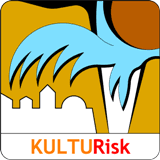
KULTURISK – Knowledge-based approach to develop a cULTUre of Risk prevention
Project Overview
The program wishes to evaluate the benefits of creating a risk culture. The disasters studied are related to water. The evaluation of the benefit of prevention will be measured through a comprehensive methodology: data collection, mapping, behavioural studies, structural analyses. Studying water makes it possible to reach many countries and allows the study of an important socio-economic field.
The programme therefore wishes to study water-related risks. He also wishes to explain that prevention is more socially and economically beneficial than repairing damage.
The programme then aims to: raise public awareness, shape residents’ perception of local risks.
Project Results
The main output of the project are case studies that mapped the risk and then determined the levers to be put in place to adapt to the risk locally. This work was carried out with local actors and mainly local authorities.
Risk maps and statistics were developed on the basis of a 300-year return period scenario for six relevant targets exposed to flood risk: people; economic activities: buildings, infrastructure and agriculture; natural and semi-natural systems; and cultural heritage.
The European project has published numerous guides for successful local adaptation to climate hazards.
This project has been at the origin of new projects consisting in including citizens in the recording of meteorological data, for example. KULTURISK has produced tools for risk education.

